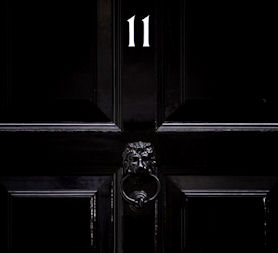Chancellors debate: 'A few blows, but no knockout'
Updated on 30 March 2010
John Van Reenen, Director of the Centre for Economic Performance and Professor of Economics at the London School of Economics says all would-be Chancellors agreed on many issues.

It wasn't exactly "the one you've all been waiting for".
The three potential Chancellors lined up – Alistair Darling (current heavyweight champion), George Osborne (the Main Contender) and Vince Cable (veteran outsider punching above his weight) – for a fiscal slugfest.
In the end it was a bit of a disappointment. Not much blood on the mat or any clear knockouts. Gorgeous George did better than expected: there was some smart money on him to be on the canvas early, but it didn't happen.
The basic problem with modern politics is that there is too much agreement. Not fundamental agreement, mind you, but the agreement that comes from the polling fact that most voters don't like extremes, that deep ideological cleavages are passé and that promiscuous politicians nab each others' policies faster than the car keys out of the proverbial 1970s fruit bowl.
Singing from the same song sheet?
I was mainly struck by the main similarities between the three parties: the basic refrain was "we're broke, it's miserable and it's going to get worse - get used to it".
Vince Cable was the most depressingly realistic and emerged as more of an honest broker because of it. The other parties still largely sidestepped the issues of exactly which spending areas would feel the axe swinging.
To give the main parties their due, even the Lib Dems only showed a bit of leg on the spending cuts – a trident not being renewed here and tax credits scrapped for the better off there.
Everyone signed up to how big the fiscal position was and the need to reduce the deficit, the priority of the NHS, the scandal of bank bonuses (although not much clarity over what to do about it), cutting back excessive public pensions (but no mention of the necessity to rapidly increase the retirement age), etc.
A rare moment of humour was when George Osborne complained about his clothes on stamp duty relief being stolen by the government. A great example of that rarest of beasts "cross party co-operation" replied the Chancellor.
More on Channel 4's Ask the Chancellors debate
- Chancellors clash over deficit and tax plans
- Ask the Chancellors: economists' reactions
- Ask the Chancellors: FactCheck
- Gary Gibbon: Cable man of the match
- Gary Gibbon: Cable wins, but nobody ganged up on him
Passionate about taxes
The point at which things seemed to really heat up was over yesterday's announcement by the Conservatives to offset some of the government's proposed one per cent increases to National Insurance from April 2011 for those earning less than £45,400 (but more than £7,100) a year.
This enabled Mr. Osborne to re-claim the Tory mantle of tax cutter and also argue that he was giving a boost help to the fragile recovery (in a year's time). Unfortunately, as was pointed out repeatedly by his opposite numbers, this would mean reduced revenues of about £5.6bn a year.
At a time when the main refrain was cutting the deficit, how was the circle squared? The answer: efficiency savings!
The Conservatives claim to have found an additional £6bn of efficiency savings on top of the £11bn or so already banked by Labour that could be used to finance this tax cut.
It is wise to be skeptical about any party's ability to deliver these magical efficiency savings. But in any case, if these saving were really found it would mean that there was no net increase in the stimulus, so could this in any sense be supporting the recovery?
In any case, the debate circled around the credibility of deficit reducers to really reduce the deficit whilst raising taxes.
I was a bit surprised, like Vince Cable that the Tories had signed up to a bank tax.
Cable himself believes in a bankers' conspiracy to defraud the rest of us and that the cartel-busters should move in. Darling was more sanguine about bank size per se – surprisingly so.
Although it is true that Northern Rock was small by international standards their playing in the wholesale market was clearly a cause of their downfall.
The opposition parties landed blows on Darling without much response in two areas. First, they said that inequality had increased. I expected him to reply that this was driven by the top one per cent and 10 per cent and that disparities had (i) fallen in the bottom half of the income distribution, (ii) would have been hugely greater under the 1997 tax and benefit rules he inherited. He didn't.
Second, he took a hammering for the jobs numbers and waffled on about partnerships with the private sector. A better response would have been to point out that the rise in unemployment was way lower than was expected given the fall of output by well over six per cent.
But maybe no Chancellor likes to boast about having an economy with the largest fall of output since the War.





